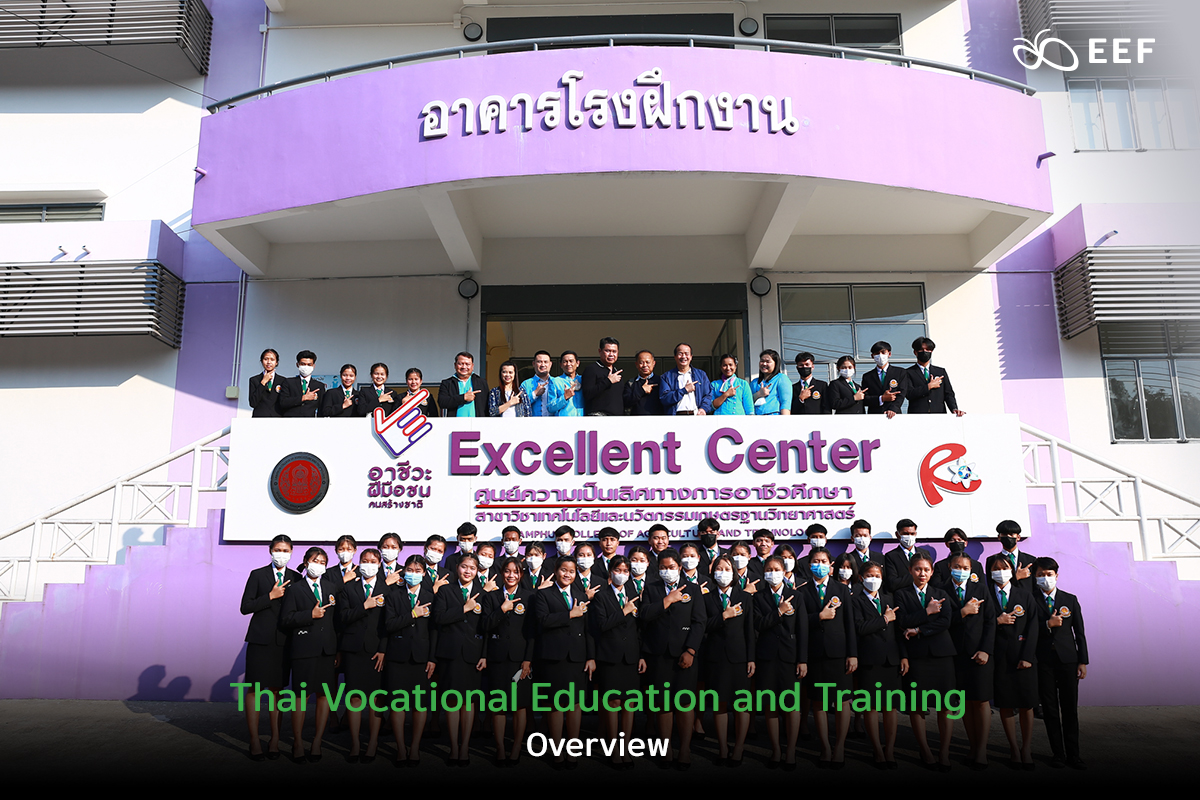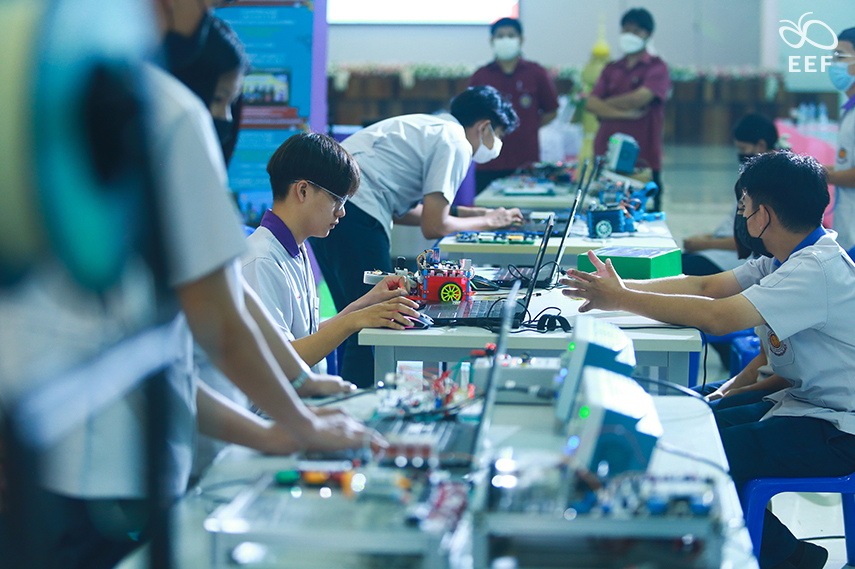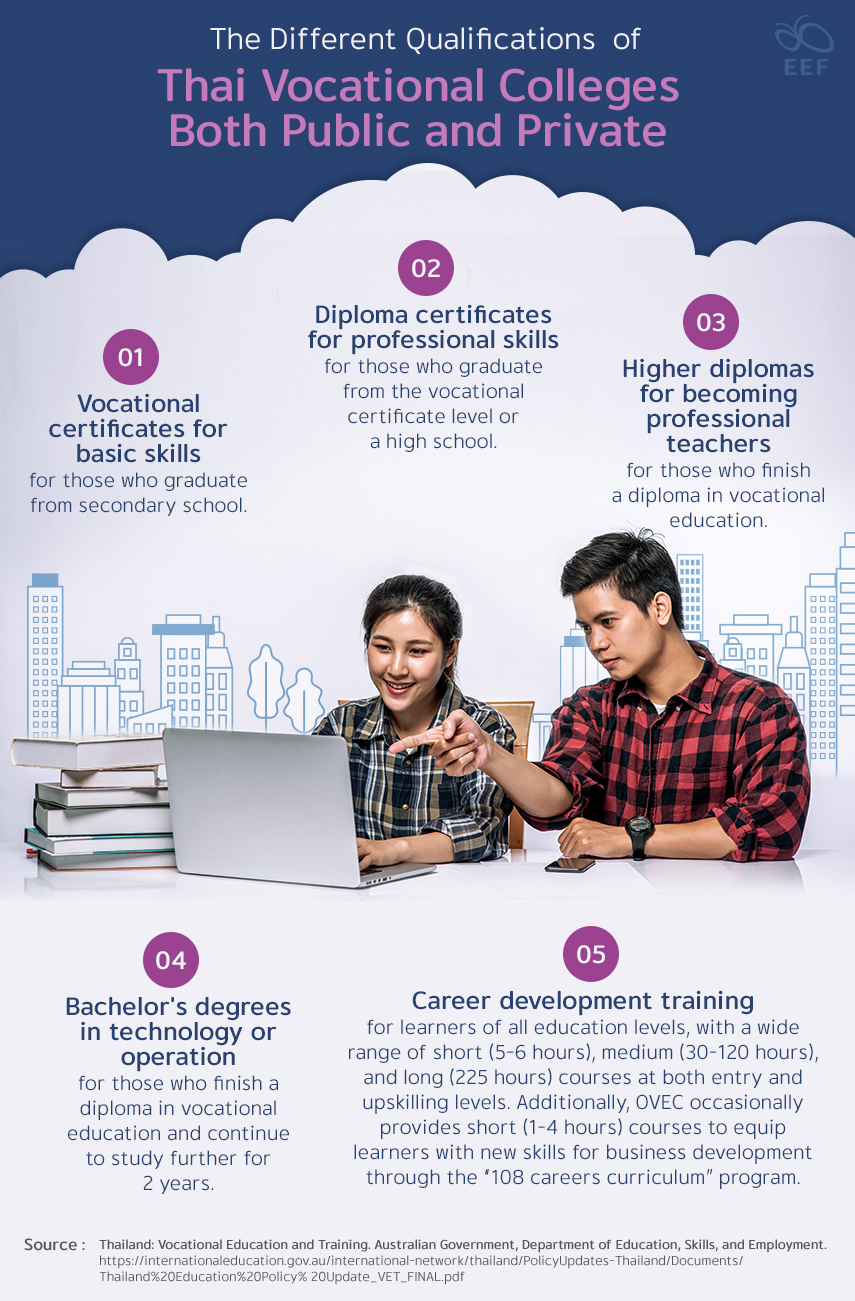
Since 2014, Thailand has been undergoing a comprehensive reform of its vocational education and training (VET) system to address industry needs, boost productivity, and align skills training with the labor market. The Office of the Vocational Education Commission (OVEC) plays a crucial role in establishing VET standards and curricula. However, the quality of many VET institutions remains a persistent challenge, with concerns raised by industry stakeholders about graduates lacking the necessary skills for employment. While acknowledging the gap between education and market demand, finding effective solutions has proven difficult. Urgent action is needed to bridge this gap by enhancing education quality, aligning curricula with industry requirements, and fostering collaboration between educational institutions and employers. By doing so, Thailand can unlock the potential of its workforce and drive sustainable economic growth in the era of Thailand 4.0.

OVEC, the main authority for vocational education in Thailand, oversees vocational and professional lifelong learning. Vocational education is offered through both the formal school system, encompassing basic and vocational streams, and non-formal education opportunities. Nationwide, there are approximately 429 public and 484 private colleges providing formal VET programs. OVEC is responsible for nearly 1 million vocational students (as of 2019), focusing on producing skilled workers, technicians, and technologists across nine major fields of study, including industry, commerce and business administration, fine and applied arts, home economics, agriculture, fisheries, tourism and hospitality, textiles industry, and ICT.
Formal VET in Thailand operates at three levels: 1. Upper secondary (Lower Certificate of Vocational Education), 2. Post-secondary (Diploma or Vocational Associate Degree), and 3. University level (Bachelor’s Degree). VET courses encompass the nine various major fields of study.

Thai vocational colleges, both public and private, offer different qualifications:
- Vocational certificates for basic skills for those who graduate from secondary school.
- Diploma certificates for professional skills for those who graduate from the vocational certificate level or a high school.
- Higher diplomas for becoming professional teachers for those who finish a diploma in vocational education.
- Bachelor’s degrees in technology or operation for those who finish a diploma in vocational education and continue to study further for 2 years.
- Career development training for learners of all education levels, with a wide range of short (5-6 hours), medium (30-120 hours), and long (225 hours) courses at both entry and upskilling levels. Additionally, OVEC occasionally provides short (1-4 hours) courses to equip learners with new skills for business development through the “108 careers curriculum” program.
Thailand is embracing lifelong learning and a learning society through the implementation of a credit transfer system, which allows for seamless mobility between educational institutions. The recognition of diverse qualifications offered by different vocational training providers and the evaluation of prior learning and work experience, whether gained within the formal, non-formal, or informal sectors, are key components of this system. Reforms are underway to reshape the vocational education system in line with industrial practices and demands, to establish the Thai Vocational Qualification (TVQ) as the standard framework.
The Ministry of Education in Thailand receives the largest budget among the 19 ministries, with an allocation of around 490 billion Thai Baht in the fiscal year 2019. This accounts for approximately 20% of the national project or 4% of the GDP rate dedicated to education. Compared to other OECD countries, Thailand invests a higher percentage of its budget in education. The financing of the VET system primarily comes from the Ministry of Education, while the OVEC determines the criteria and allocation of the budget and other essential resources.

As Thailand progresses towards the vision of Thailand 4.0, maximizing the potential of the workforce and fostering sustainable economic growth take center stage. Policy-makers have recognized the importance of addressing the challenges faced by the VET system to ensure its effectiveness in preparing individuals for the demands of the evolving labor market. Through proactive initiatives, policymakers are working towards enhancing the quality and relevance of VET programs, aligning them with industry requirements, and promoting closer collaboration between educational institutions and employers. These efforts aim to bridge the gap between education and market needs, equipping individuals with the skills and competencies necessary for success in the digital era. A series of measures and advancements undertaken by Thailand have been made to strengthen the VET system and create a solid foundation for future workforce development.
Source:
Thailand: Vocational Education and Training. Australian Government, Department of Education, Skills, and Employment.

